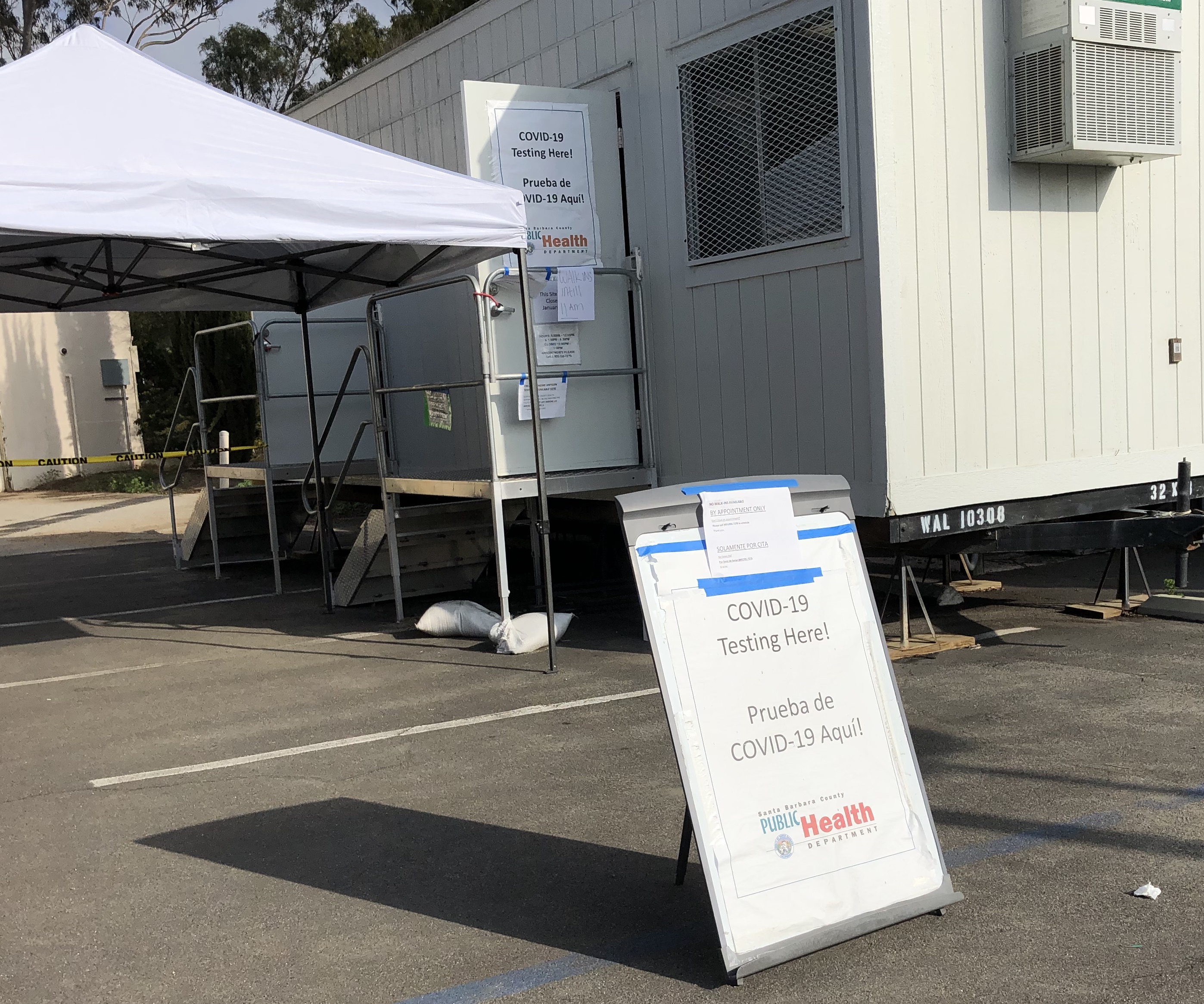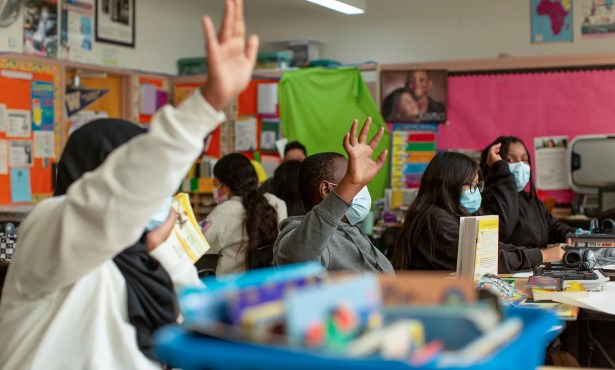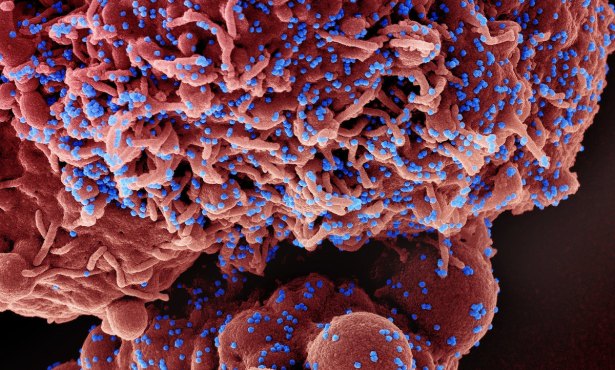Public Health Testing Site Expands Hours
Santa Barbara County Tests for COVID-19 by Appointment but Website Out of Sync

The testing trailer at County Public Health expanded its hours this Saturday and Sunday, which are now 7:30 a.m. to 6:30 p.m., although the online appointment system indicates appointments are not available for weeks.
As this reporter tested the website, appointments were variously available for January 18, January 21, or not at all for the Santa Barbara location. Lompoc had times on January 18. At the state LHI.care appointments website — which requires a succession of questions and answers even longer than the county’s — Santa Paula and Santa Maria were the closest locations with times available today.
Van Do-Reynoso, head of Public Health, replied to an email this morning, saying the last time they checked, plenty of appointments were available on Sunday. The site might be having glitches and she said their tech support would look into it.
No customers were at the 267 Camino del Remedio location today mid-morning, and the staffers onsite willingly took a walk-up customer. A couple more people soon walked up. A spotcheck at noon found about five people standing in line. During the week, the testing trailer had a constant stream of customers, the staffers said.
In a video released on January 7 to announce the new hours and update the public, Do-Reynoso said reported cases, case rates, and testing positivity were at record levels, the highest in the 21 months of the pandemic. “The surge in new cases and increase in testing positivity are reflective of the Omicron variant that is rapidly spreading in California,” she said. “We suspect that Omicron accounts for the majority of our cases here in Santa Barbara County.”
After this weekend, the testing trailer closes on Monday and Tuesday. It will continue its expanded hours Wednesday through Sunday. Do-Reynoso states in the video that an appointment is required; however, at the time this story was posted, the appointments website was still showing tests were unavailable for over a week.
Private Testing Sites
The great attraction of the Public Health trailer and its mobile testing bus in Direct Relief’s parking lot is that the tests are free. Over-the-counter rapid tests run over $25, but you’re supposed to wait three to five days after exposure to use them; for those of us too impatient or too anxious to wait, multiple swabbings can get expensive. Private health-care providers give or prescribe COVID tests that are covered by insurance; otherwise, fees can range between $100-$180. They, too, have been swamped with appointments and patients.
Cottage Health’s two Urgent Care locations in Goleta saw an increase from 813 tests per week in early December to 1,256 this past week, said Taryn O’Connell, who directs operations for the hospital system. These are normally walk-in centers, but the surge in test requests meant testing appointments have been required for about two weeks. They were filling up as early as 7 a.m., O’Connell said. There is no waiting list, and the best time to get an appointment, she advised, is the evening before through to the early morning. The Calle Real clinic does drive-up testing, and the Hollister Avenue clinic is indoors.
While the test is a rapid test, with results in about 15 minutes, it is a molecular rapid test, O’Connell said, and gives a more accurate result — 96 percent as compared to the PCR test — than over-the-counter rapid test kits. As well, for travelers, the Cottage urgent cares have a $99 PCR test, which could take up to 72 hours for a result.
Dr. Kurt Ransohoff, medical director for Sansum, said in a letter to patients that the clinics were receiving an unprecedented volume of calls for doctor visits, urgent care appointments, and testing requests. As Do-Reynoso had in the video, he connected the uptick to the extremely contagious Omicron variant. Testing was up manifold times as was the positivity rate, up at 52 percent on Wednesday.
Sansum’s Director of Operations Mimosa Bitter said they were able to see patients by appointment for tests the same day — and lines formed at their opening time of 8 a.m. — but they had to stop at 5 p.m., when patients were offered the next day. They were only able to test patients who were symptomatic, she added: “Patients do need to be symptomatic to get a COVID-19 test with us at this time. With a limited number of staff and testing resources, we need to reserve tests for those people who need them the most.“ Sansum will do a rapid test for travel purposes by appointment only and at a flat fee of $100.
Testing the Test
In the video, Do-Reynoso acknowledged the frustration and weariness people were facing: “People who thought COVID would never reach them are now, more than ever, experiencing the effects of this virus at home, at work, at school, and in everyday life.” Between the surge and the free testing shortage, the predicament of suspecting a case of COVID and delays in knowing for sure is affecting more and more people. The over-the-counter rapid tests that many turn to have almost disappeared from drug-store shelves, but a recent non-peer-reviewed study discussed the timing of their use and some disparate results that got national attention in the New York Times.
According to study author Blythe Adamson, even though the study is statistically very small — 30 subjects — it demonstrated that rapid tests had not detected the virus on the day of and day after a suspected contact, though PCR tests had. (It should be noted that PCR tests are described as “very sensitive,” which means they can detect mere molecules of virus before, and long after, a person has symptoms.) The subjects were fully vaccinated and feeling healthy, she said, and CDC guidance does not state vaccinated people who suspect exposure should isolate, only that they test. Adamson, who is an epidemiologist in New York City and affiliated with the University of Washington in Seattle, said her study was a contribution to the important discussion ongoing about exposure and large gatherings like 300-person weddings, which had the potential to be super-spreader events. Each new variant needed to be assessed against the available tests, she said. She agreed with public health officials who say a tightly fitting mask would be incredibly important in a large crowd to mitigate transmission.
Adamson’s clients include people who must work without masks; they represented about half the shows on Broadway and, most recently, opera singers at Lincoln Center. She was astonished to learn it could take two weeks to get a free PCR test in Santa Barbara. Through bulk contracts with labs that analyzed PCR tests, they were able to receive discounted prices and an eight-hour turnaround time for results. “Pooled PCR testing is such a really important way to scale the number of tests that labs can run for schools or other large, regularly tested groups, and reduce the costs and make it affordable,” she said. Health officials and experts in the chemistry of rapid tests with whom the Independent spoke remained confident in the tests’ ability to detect the virus that causes COVID-19.
The new hours at Public Health’s testing trailers may improve the availability of free tests. During the interim of uncertainty, Public Health has full recommendations at publichealthsbc.org/dont-feel-well for individuals at various levels of vaccination, including none at all, regarding quarantine days, when to get tested, and wearing tight-fitting masks to avoid infecting other people.


